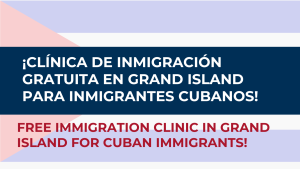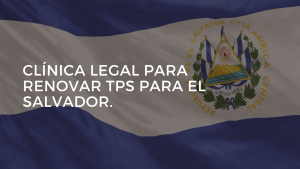Last Updated: February 5, 2020 at 9:00 a.m.
Immigrant Legal Center wants all our clients and neighbors to know where to find accurate health information and answers to questions about COVID-19. Public health departments are resources for protecting and improving the health of all residents in their communities. https://www.immigrantlc.org/public-health-department-contacts/
El Centro Legal para Inmigrantes quiere que todos nuestros clientes y vecinos sepan dónde encontrar información de salud precisa y respuestas a preguntas sobre COVID-19. Los departamentos de salud pública son recursos para proteger y mejorar la salud de todos los residentes en sus comunidades. https://www.immigrantlc.org/public-health-department-contacts/
At Immigrant Legal Center, the safety and health of our clients and staff is our number one priority. Based on recommendations by the CDC and per our organizational closure policy, all Immigrant Legal Center offices are closed until further notice in response to the COVID-19 situation.
Per our policy for a closure of this type, all Immigrant Legal Center employees will work from home.
- Attorneys will reach out to clients to reschedule appointments as necessary;
- Attorneys will continue to attend scheduled court hearings if the courts are open;
- All client service-related deadlines will continue to be met.
Those in need of immigration legal assistance can still contact NILAH (Nebraska Immigrant Legal Assistance Hotline) at 1.855.307.6730.
Current clients, community partners and the public can continue to reach Immigrant Legal Center staff by calling 402.898.1349 or emailing info@immigrantlc.org.
We will continue to monitor the COVID-19 situation and will update this page as necessary.
En el Centro Legal para Inmigrantes, la seguridad y salud de nuestros clientes y personal son nuestra prioridad número uno. Basado en las recomendaciones del CDC y por nuestra política organizacional de cierre, todas las oficinas del Centro Legal para Inmigrantes se cerrarán hasta nuevo aviso en respuesta a la situación del COVID-19.
Según nuestra póliza por cualquier cerramiento de este tipo, todo personal del Centro Legal para Inmigrante trabajara desde su casa.
- Los abogados estarán en comunicación con sus clientes para reprogramar sus citas como vean ellos necesario;
- Los abogados continuaran yendo a sus audiencias de corte SI las cortes están abiertas
- Todo plazo relacionado al servicio del cliente continuara realizándose.
Aquellas personas que necesiten asistencia legal para inmigración podrán contactar a NILAH (La Línea de Asistencia Legal Migratoria en Nebraska) al 1.855.307.6730.
Clientes actuales, socios de comunidad y el público pueden seguir comunicándose con el personal del Centro Legal para Inmigrante llamando al 402.898-1349 o correo electrónico info@immigrantlc.org.
Continuaremos monitoreando la situación del COVID-19 y actualizaremos la página según sea necesario: immigrantlc.org/covid19
Community & Legal Updates
Contact your attorney if you have questions about your case.
NEW UPDATES
Immigration Court hearings in Omaha for non-detained cases are postponed through July 17, 2020.
Updates from ice.gov/coronavirus:
Has ICE suspended in-person reporting requirements for ATD participants?
Due to the COVID-19 pandemic, and in an effort to reduce the risk to participants, ICE has temporarily suspended the requirement for ATD participants to report in-person for office visits, and home visits have been temporarily suspended as well. In the interim, ICE will continue to leverage telephonic and electronic reporting between participants and case specialists. ICE will maintain this posture until either stay-at-home orders are lifted or ICE, in consultation with the Centers for Disease Control and Prevention, determines that the risk to resume face-to-face contact has been mitigated.
I tried calling ICE but they did not answer the phone. What should I do?
Leave a message for ICE with your name, A-number, and phone number. Due to the unfolding situation with COVID-19 and a higher than expected number of phone calls, ICE will be contacting you soon to provide you with updated information on how to proceed with your check-ins.
I’m unable to attend an ICE check-in because of COVID-19, what should I do?
Contact your local ICE field office. If they do not answer, leave a message with your name, A-number, and phone number. Due to the unfolding situation with COVID-19 and a higher than expected number of phone calls, ICE will contact you with updated information on how to proceed with your scheduled check-in.
I have a scheduled check-in, what should I do?
Individuals should contact their local field office for additional guidance prior to their scheduled appointment.
More guidance is available at https://www.ice.gov/coronavirus.
Contact your attorney if you have questions about your specific case.
Immigrant Eligibility and the CARES Act Rebate
Certain work authorized immigrants with valid social security numbers will stand to benefit from the CARES Act’s individual rebate. The CARES Act’s intersection with immigration is complicated, and experts are still researching its reach across the immigrant community. We invite you to check back in with us for more updates as they emerge.
Immigration Court/EOIR: All non-detained hearings are cancelled until July 17, 2020. Detained hearings are moving forward as scheduled for now. If you have a hearing scheduled, please contact your attorney.
USCIS: In-person services have stopped until June 4, 2020. All future interviews for pending affirmative asylum applications, NACARA 203 applications, and non-detained credible fear and reasonable fear screenings in asylum offices and on circuit rides have been cancelled. Please contact your attorney for questions about your scheduled interviews.
USCIS Form Signatures: For forms that require an original “wet” signature, per form instructions, USCIS will accept electronically reproduced original signatures for the duration of the National Emergency.
ICE Check-ins: Individuals should contact their local field office for additional guidance prior to their scheduled appointment.
ICE Bonds: Only one person will be allowed in the building to pay an ICE bond.
ICE Detainee visits: In-person visitation has been suspended.
State court hearings: Courts are not closed. Local judges have the discretion to hold hearings or continue them. Contact your attorney for questions about your scheduled hearings, including a discussion of whether you have experienced COVID19 systems and how many people can be present during your hearing.
All future interviews for pending affirmative asylum applications, NACARA 203 applications, and non-detained credible fear and reasonable fear screenings in asylum offices and on circuit rides have been cancelled. https://www.uscis.gov/about-us/uscis-response-coronavirus-disease-2019-covid-19
Tribunal de Inmigración/EOIR: Todas las audiencias no detenidas se han cancelado hasta el 17 de julio, 2020. Las audiencias detenidas seguirán adelante como programadas por ahora. Si usted tiene una audiencia programada, favor de ponerse en contacto con su abogado.
USCIS: Los servicios en persona se han suspendido hasta el 6 de juno, 2020. Todas las entrevistas futuras para las aplicaciones de asilo afirmativas, aplicaciones de NACARA 203 y revisiones de miedo creíble y razonable no detenidas en las oficinas de asilo y en los paseos en circuito se han cancelado. Favor de ponerse en contacto con su abogado si tiene preguntas acerca de sus entrevistas programadas.
Las firmas en los formularios de USCIS: Para los formularios que requieren una firma “húmeda” original, por las instrucciones, USCIS aceptará las firmas originales reproducidas electrónicamente por la duración de la Emergencia Nacional.
Los check-ins con ICE: Los individuos deben contactar a su oficina de campo local para orientación adicional antes de su cita programada.
Las fianzas de ICE: Solamente se permite que una persona entre al edificio para pagar una fianza de ICE.
Las visitas a los detenidos de ICE: La visitación en persona se ha suspendido.
Las audiencias en los tribunales del estado: Los tribunales no están cerrados. Los jueces locales tienen la discreción para llevar a cabo las audiencias o continuarlas. Póngase en contacto con su abogado para las preguntas acerca de sus audiencias programadas, incluyendo una discusión sobre si usted ha experimentado las síntomas de COVID-19 y cuantas personas pueden estar presentes durante su audiencia
Nebraskans Who Cannot Pay Rent due to COVID-19 are Protected From Eviction until May 31, 2020
On March 25, Nebraska Gov. Pete Ricketts issued an executive order temporarily barring evictions for residents who have lost wages due to the Coronavirus. The order provides that landlords cannot evict tenants for failure to pay rent between March 13 and May 31, 2020 if the tenant either suffered a loss of income due to COVID-19 (i.e., lost a job, had work hours reduced, or place of employment closed), or missed work to care for a relative or a child whose school or childcare facility was affected by COVID-19. Nor can a landlord evict a tenant because a household member is sick with COVID-19. Under the order, tenants must still pay rent as soon as they are able, and no later than May 31, 2020. https://twitter.com/GovRicketts/status/1242919402338746370.
Los de Nebraska que No Pueden Pagar el Alquiler debido a COVID-19 están Protegidos Contra el Desalojo hasta el 31 de Mayo de 2020
El 25 de marzo, el gobernador de Nebraska, Pete Ricketts, emitió una orden ejecutiva que prohíbe temporalmente los desalojos para los residentes que han perdido salarios debido al Coronavirus. La orden establece que los propietarios no pueden desalojar a los inquilinos por no pagar el alquiler entre el 13 de marzo y el 31 de mayo de 2020, si el inquilino sufrió una pérdida de ingresos debido a COVID-19 (es decir, perdió un trabajo, se redujeron las horas de trabajo, o el lugar de empleo cerró), o el trabajo perdido para cuidar a un pariente o un niño cuya escuela o guardería se vio afectada por COVID-19. El propietario tampoco puede desalojar a un inquilino porque un miembro del hogar está enfermo con COVID-19. Según la orden, los inquilinos aún deben pagar el alquiler tan pronto como puedan y, a más tardar, el 31 de mayo de 2020. https://twitter.com/GovRicketts/status/1242919402338746370.
Avoid Scams
Don’t click on links from sources you don’t know.
They could download viruses onto your computer or device. Watch for emails claiming to be from the Centers for Disease Control and Prevention (CDC) or experts saying they have information about the virus. For the most up-to-date information about the Coronavirus, visit the Centers for Disease Control and Prevention (CDC) and the World Health Organization (WHO).
Ignore online offers for vaccinations.
There currently are no vaccines, pills, potions, lotions, lozenges or other prescription or over-the-counter products available to treat or cure Coronavirus disease 2019 (COVID-19) — online or in stores.
From the Federal Trade Commission:
As the Coronavirus takes a growing toll on people’s pocketbooks, there are reports that the government will soon be sending money by check or direct deposit to each of us. The details are still being worked out, but there are a few really important things to know, no matter what this looks like. no matter what this payment winds up being, only scammers will ask you to pay to get it. If you spot one of these scams, please tell the Federal Trade Commission: www.ftc.gov/complaint. Learn more about avoiding scams here.
Individuals Should Contact ICE Prior to Scheduled Check-In if Sick Las Personas Deben Comunicarse con ICE Antes de su Chequeo Programado si Están Enfermos
ICE has indicated that if an individual with a scheduled ICE check-in (including through the ISAP program) is sick, they should contact the local ICE Field Office prior to their scheduled appointment for further guidance. The phone number for the Omaha ICE Field Office is (402) 536-4804. The phone number for the Omaha ISAP office is (402)342-4076. https://www.ice.gov/covid19
ICE ha indicado que si una persona con un registro programado de ICE (incluso a través del programa ISAP) está enfermo, debe comunicarse con la oficina local de ICE antes de su cita programada para obtener más orientación. El número de teléfono de la Oficina de Campo de Omaha ICE es (402) 536-4804. El número de teléfono de la oficina de Omaha ISAP es (402) 342-4076. https://www.ice.gov/covid19
Hospitals and Medical Facilities are “Sensitive Locations” where ICE Arrests Should Not Occur Los Hospitales y las Instalaciones Médicas son “Ubicaciones Sensibles” donde No Deberían Ocurrir Arrestos por ICE
ICE has reaffirmed that Immigration and Customs Enforcement “does not conduct enforcement operations at medical facilitates, except under extraordinary circumstances.” Rumors that ICE is present at health care facilities “create unnecessary fear within communities” and can deter immigrants from seeking needed medical care for themselves and their families. ICE advises that “[i]ndividuals should continue to seek medical care.” If ICE is seen at or near a healthcare facility, please notify the Immigrant Legal Center at (402)898-1349 or information@immigrantlc.org. https://www.ice.gov/covid19. https://www.ice.gov/doclib/ero-outreach/pdf/10029.2-policy.pdf.
ICE ha reafirmado que la agencia “no llevará a cabo operaciones de cumplimiento en instalaciones médicas, excepto en circunstancias extraordinarias.” Los rumores de que ICE está presente en los centros de atención médica “crean miedo innecesario dentro de las comunidades” y pueden disuadir a los inmigrantes de buscar la atención médica necesaria para ellos y sus familias. ICE informa que “los individuos deben continuar buscando atención médica.” Si se ve a ICE en o cerca de un centro de salud, notifique al Centro Legal para Inmigrantes al (402)898-1349 o information@immigrantlc.org. https://www.ice.gov/covid19. https://www.ice.gov/doclib/ero-outreach/pdf/10029.2-policy.pdf
Seeking Medical Treatment or Preventive Services for COVID-19 Will Not Negatively Affect Applicants for an Immigration Benefit USCIS Confirma que Buscar Tratamiento Médico o Servicios Preventivos para COVID-19 No Afectará Negativamente a Los Solicitantes de Un Beneficio de Inmigración
Out of concern that individuals may be afraid to access needed medical treatment or take preventive measures related to COVID-19, USCIS will not “consider testing, treatment, nor preventative care … related to COVID-19 as part of a public charge … determination … even if such treatment is provided or paid for by one or more public benefits, as defined in the rule (e.g. federally funded Medicaid).” If an individual lives or works in a jurisdiction where disease prevention methods such as social distancing or quarantine are in place, or where one’s employer, school, or university shuts down operations to prevent the spread of COVID-19, the applicant may submit a statement with his or her application, explaining how such methods or policies have affected the applicant as relevant to the factors USCIS must consider under the public charge rule. https://www.uscis.gov/greencard/public-charge
Los Servicios de Ciudadanía e Inmigración de EE.UU. (USCIS) han indicado que los cambios recientes a la regla de “carga pública” “no restringen el acceso a pruebas, detección, o tratamiento de enfermedades transmisibles, incluido COVID-19. Además, la regla no restringe el acceso a las vacunas para niños o adultos….” Debido a la preocupación de que las personas puedan tener miedo de acceder al tratamiento médico necesario o tomar medidas preventivas relacionadas con COVID-19, el USCIS no “considerará las pruebas, el tratamiento, ni la atención preventiva … relacionados con COVID-19 como parte de una carga pública … determinación … incluso si dicho tratamiento es proporcionado o pagado por uno o más beneficios públicos, como se define en la regla (por ejemplo, Medicaid financiado con fondos federales).” Si un individuo vive o trabaja en una jurisdicción donde existen métodos de prevención de enfermedades, tales como distanciamiento social o cuarentena, o donde el empleador, la escuela, o la universidad cierran las operaciones para evitar la propagación de COVID-19, el solicitante puede presentar una declaración con su solicitud, explicando cómo tales métodos o políticas han afectado al solicitante según lo relevante a los factores que USCIS debe considerar bajo la regla de carga pública. Por ejemplo, si se impide que el solicitante trabaje o asista a la escuela, y debe confiar en los beneficios públicos durante la fase de recuperación y brote de COVID-19, el solicitante puede proporcionar una explicación y documentación de respaldo relevante.
Update from USCIS
As the situation with COVID-19 continues to evolve, you can find USCIS updates at uscis.gov/coronavirus. Additional USCIS resources on the USCIS COVID-19 webpage include:
- USCIS Office Closings;
- Appointments and Rescheduling;
- Naturalization Oath Ceremonies; and
- Special Situations
We will keep adding information to this page as it becomes available.
If you become ill for any reason, regardless of whether you have been exposed to COVID-19, you should not come to appointments with any USCIS office. We will reschedule without penalty. Follow the instructions on your appointment notice to reschedule your appointment or interview. Learn how to reschedule your appointment online.
Education and precautions are the strongest tools against infection. Stay informed by visiting the Centers for Disease Control and Prevention’s COVID-19 website.
Kind regards,
Public Engagement Division
U.S. Citizenship and Immigration Services
Resources for the Coronavirus
- Immigrant Legal Resource Center Resources and Responses
- National Immigrant Law Center : Understanding the Impact of Key Provisions of COVID-19 Relief Bills on Immigrant Communities
-
CDC Centers for Disease Control and Prevention – COVID-19 Information
- Additional Multilingual Resources
- Multilingual videos from Lutheran Family Services
COVID-19 Vaccine Fact Sheets
Pfizer-BioNTech COVID-19 Vaccine Fact Sheet
Moderna Covid-19 Vaccine Fact Sheet
CDC Fact Sheet
- https://www.cdc.gov/coronavirus/2019-ncov/vaccines/expect.html
- https://www.cdc.gov/coronavirus/2019-ncov/downloads/vaccines/facts-covid-vaccines-english-508.pdf
- Additional Multilingual Resources
Hoja Informativa Sobre las Vacunas del COVD-19
Hoja Informativa Pfizer-BioNTech Vacuna COVID-19
Hoja Informativa Moderna Vacuna COVID-19
Centros para el Control y Prevención de Enfermedades





